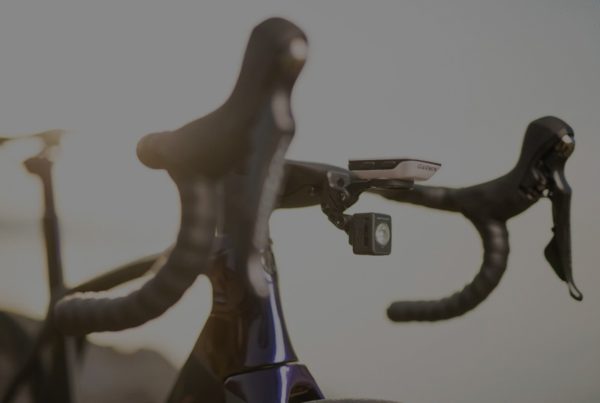By Bob Mionske
Legally Speaking – with Bob Mionske: Is it my garage or my car that’s at fault?
Published Jan. 19, 2006 on VeloNews
Dear Bob,
I am an attorney and have been practicing as an Assistant DA for the past 15 years. A few weeks ago I forgot about “toys on top” and drove into the garage with my beautiful Wilier on top. My home owner’s policy covers damage caused by a vehicle. They have denied coverage because they are saying the garage caused the damage. I think it is a strained interpretation of the policy as they would cover the bike if I had backed over it. I looked at an old policy with another company and they had the same language. I know of other cyclists who have been covered. Have you dealt with this situation in the past? I have not done any research on the issue as I have been off for the past several days. Not to mention the fact that I haven’t given much thought to contract issues for a long time.
Thanks,
S.S.
Tennessee
Dear S.S.
A Tennessee lawyer fighting an insurance company that denied a claim? That sounds like something right out of a John Grisham novel, so let’s see how this plot thickens.
It’s sometimes easy to forget that something’s on the roof of your car, isn’t it? My research assistant remembers the time he was pulled over for a traffic citation; after receiving the citation, he got back in his car, drove across town, up hills, down hills, left turns, right turns, and when he got out of his car, there was his wallet right where he left it when he got the ticket—on the roof. Fortunately, although insurance companies don’t cover wallets, they do cover bicycles. But getting them to pay up is sometimes a different matter, as you’re discovering.
The Elements of a Claim
We’ll start with the basic elements of an insurance claim for property loss; in making your claim, you will need to show that You are an insured person under the policy; Your bike is covered by the policy; Your loss occurred within the policy’s period of coverage; Your loss meets the threshold for triggering the insurer’s liability; Your loss was caused by a peril covered by the policy.The first three elements of the claim are pretty much self-explanatory, and are not being disputed by your insurance company, so let’s skip to the last two elements. Your home owner’s policy covers your bike for damage, so the damage to your bike meets the threshold for triggering the insurer’s liability. However, your policy specifies that the bike is covered for damage caused by an automobile; that is the fifth element of the claim—a peril covered by the policy. So you have a claim that meets the first four elements, but the insurance company is denying the claim because they say it doesn’t meet that final element, a specified peril. Although your bike was damaged when you drove into the garage with the bike secured to your roof rack, they are claiming that it was the garage, and not the vehicle, that caused the damage.
Can they do that? That’s certainly an interesting reading of the contract, and one that’s plausible enough to argue with a straight face, even if it does conjure up images of your garage lurching forward to attack your bike. But your argument—that the damage was caused by your car—can also be made with a straight face. So who’s right?
Contract Interpretation
That really depends on how the contract—and an insurance policy is just that- a type of contract—is interpreted. Fortunately, the courts have developed a number of rules over the years for interpreting insurance contracts, so we don’t have to reinvent all this stuff every time the meaning of a contract clause is called into question.
One of the rules of interpretation the courts have developed is that limitations in the contract—words that are an exception to the contract clause—are strictly construed against the insurer. This means that where the meaning is vague, or can reasonably be interpreted in more than one way, the court will interpret the contract in favor of the person insured. On the other hand, another rule for interpreting contracts requires that contract language which has a plain meaning must be interpreted to mean what is plainly said. Another rule of interpretation, the “reasonable expectations” doctrine, requires the court to interpret the contract as providing coverage if a reasonable person would construe the policy as providing coverage.
In a situation like this, where the contract limits coverage to damage caused by a vehicle, if the court determines that the language of the clause has a plain meaning, it will enforce that plain meaning. If, on the other hand, the court determines that you and the insurance company have differing reasonable interpretations of that clause, the court will interpret the clause to mean what you say it means. Furthermore, if the court finds that a reasonable person would believe that the terms of the contract include coverage for damage caused by driving your car into the garage while the bike is secured to the roof, the court will find that the contract covers that damage. Now, let’s assume that your act of driving your car into the garage while the bicycle was on the roof was a negligent act. Can the insurance company deny your claim on that basis? Not likely. In order for a negligent act to be excluded from coverage, the policy must specifically state that negligent acts are excluded– otherwise, they’re covered by the policy.
The key here is to read your policy and see what limitations apply. If the policy covers loss caused by a vehicle, but requires that the damage be caused by an actual physical contact with the vehicle, the policy would be interpreted in favor of the insurance company. On the other hand, if the policy does not contain language that requires actual physical contact with a vehicle, the policy would likely be interpreted in your favor.
Dispute Resolution
Of course, interpreting the contract in a dispute where a claim is denied requires that a lawsuit be filed against your insurance company. It’s possible that your policy includes an arbitration clause, which means that if you choose to dispute the claim denial, it will be heard by an arbitrator instead of a court. That doesn’t prevent you from filing a lawsuit, but the insurance company may be able to have the dispute heard by an arbitrator instead. Regardless of whether the dispute is heard by a court or by an arbitrator, the contract will be interpreted according to the established rules.
Because this situation affects a business relationship, you might want to consider non-adversarial resolution of your claim before, or maybe even instead of, pursuing litigation. For example, if you buy your policy through an agent, you might consider letting your agent know how unhappy you are with the insurance company’s denial of your claim. While a Wilier isn’t cheap to replace, the company must weigh the cost of replacing the Wilier against the loss of your business. If you have both home owner’s and auto insurance with the same company, they will recoup the cost of the claim with the premiums you pay very quickly. Of course, they will be losing some profit, but that’s the nature of insurance, and the long-term picture is that they’ll be retaining a good customer. Your insurance agent is better-positioned to see that larger picture, and may be able to assist you.
You might also consider asking the claims adjuster’s supervisor to review the file. If there’s a likelihood that the contract would be interpreted in your favor in court, it will cost the insurance company a lot less to replace your Wilier than it will to defend against a lawsuit. Keep in mind, however, that some companies are known to raise their rates, or even cancel policies after a claim is paid. That shouldn’t prevent you from making a claim for your Wilier – after all, that’s what insurance is for – but you should be aware of potential downsides. In the end, you’ll have to decide if you’d rather have a Wilier, or a business relationship with the wrong insurance company – a question that a lot of riders wouldn’t have too much trouble answering.
Good luck,
Bob
(Research and drafting assistance provided by Rick Bernardi-LawStudent-Lewis and Clark Law School)
This article, Is it my garage or my car that’s at fault?, was originally published on VeloNews on January 19, 2006.



